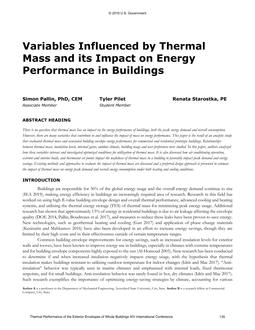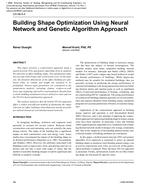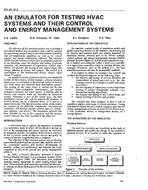At a military base in the southeastern United States, an energy services company (ESCO) has proposed to retrofit more than 1,000 family residences with geothermal heat pumps as part of an energy savings performance contract (ESPC). Each residence is to have one heat pump with its own ground heat exchanger consisting of two or more vertical bores. A design firm hired by the ESCO sized the heat pumps to meet peak cooling loads and sized the borefields to limit the maximum entering water temperature (EWT) to the heat pumps to 95ºF (35ºC). Because there is some disagreement in the geothermal heat pump industry over the peak temperature to be used for design (some designers and design manuals recommend temperatures as low as 85ºF [29ºC], while equipment manufacturers and others specify temperatures of 100ºF [38ºC] or higher), the authors were requested to examine the designs in detail to determine whether the 95ºF (35ºC) limit was adequate to ensure occupant comfort, efficient operation, and low capital and operating costs. It was found that three of the designer’s assumptions made the borefield designs more conservative (i.e., longer) than the 95ºF (35ºC) limit would indicate. In fact, the analysis indicates that with more realistic assumptions about system operation, the maximum entering water temperature at the modeled residence will be about 89ºF (32ºC). Given the implications of a borefield that is shorter than required, it is likely that other designers are using similarly conservative assumptions to size vertical borefields for geothermal heat pumps. This implies that unless all of the design assumptions are examined, blanket recommendations to limit the entering water temperature to a specific value (such as 90ºF [32ºC]) may result in borefields that are significantly oversized.
Units: Dual
Citation: Symposium, ASHRAE Transactions, vol. 107, pt. 2
Product Details
- Published:
- 2001
- Number of Pages:
- 6
- File Size:
- 1 file , 910 KB
- Product Code(s):
- D-7050


